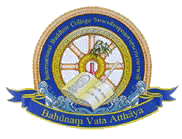
– Firstly, it is non-sectarian and multi-traditional in philosophy, outlook and practice in running educational programs and in administration.
– Secondly, it is a fully residential college for its male and female monastic students, male and female lay students.
– Thirdly, it is just about one of the few Buddhist tertiary institutions of learning where the core concentrations are Buddhist studies and practices.
– Fourthly, it is both traditional in instilling Buddhist values and practice in everyday life while at the same time liberal in offering a broad-based all-rounded education which is progressive and relevant in today’s living.
– Fifthly, it is where one finds a rich diversity of traditions of Buddhism and cultures in its resident faculty and student community.
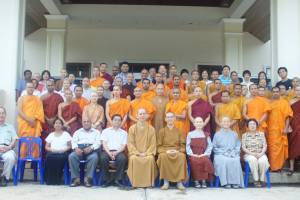
Structurally, International Buddhist College has two components, the IBC Temple and the College components. IBC Temple houses and manages the resident students and religious functions and activities. The College component comprises the academic and administrative offices, the lecture rooms and facilities, and runs the academic programs and day-to-day administration.
Historical Background:
The idea of starting a university offering courses in different Buddhist traditions was first raised by Professor Karunadasa when he taught at the Than Hsiang Buddhist Research Center in Penang in 1996. The Center had started running courses offered by the Buddhist and Pali University of Sri Lanka in 1994. The Professor saw an interesting mixture of different Buddhist traditions in this part of the world and felt that we really had the unique background to embark on this international Buddhist College project.
After some preparatory work which included citing a good location for this university, Ven. Wei Wu, the abbot of Than Hsiang Temple had the opportunity to meet with Professor Karunadasa, Ven. Anuruddha and Ven. Dhammajoti in Sri Lanka during the sixth executive committee of the World Buddhist Sangha Council in April 1999. At the meeting, it was felt that the timing was right for starting the International Buddhist College in Southern Thailand. Southern Thailand was chosen because it is very close to Penang, and we also felt that Thailand is a Buddhist country with liberal visa policy for foreign lecturers and students.
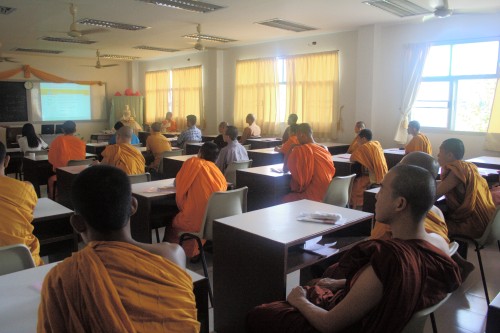
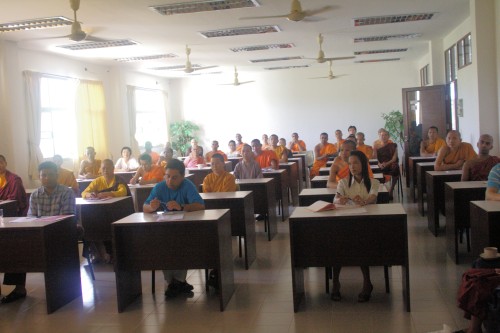
Vision:
The International Buddhist College is the realization of the vision of establishing an international institute of higher learning offering quality Buddhist education within a spiritually dedicated, non-sectarian, modern and scholastic environment. The IBC provides students at undergraduate and later at graduate levels, a unique opportunity to acquire a comprehensive and in-depth study of Buddhism while promoting knowledge and understanding of the different Buddhist traditions. It will seek to combine the continuous inculcation of Buddhist spiritual values and the rigours of academic scholarship and a healthy appreciation of the richness and diversity of Buddhist traditions.
Objectives:
To train bhikkus and bhikkhunis and serious lay Buddhists as effective Dharma teachers of the timeless and the universal teaching of Buddha.
To promote Buddhist values and to demonstrate the validity and relevance of the Buddhist teachings as a basis of a universal humanistic culture for the globalized world.
To provide a comprehensive and in-depth study of the Buddha’s teaching with special emphasis on application to our daily lives.
To serve as a center of international Buddhist culture, offering opportunities for intra- religious understanding and fellowship among the three great Buddhist traditions.
To promote fellowship with other seats of Buddhist learning in Thailand and other countries, through link programmes, joint collaborations and exchange of students and scholars.
To offer at a later stage, secular courses promoting educational and welfare work to enable graduates to go back to serve their respective societies in different countries.
Concluding Observation:
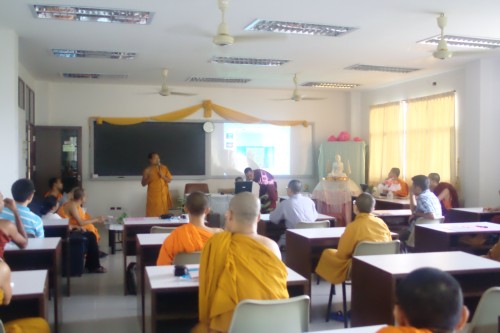
We will place equal emphasis on study and practice. By practice we incorporate putting the Buddha’s teaching into daily practice. Our teachers and students will learn to stay together as members of the Buddha’s spiritual community. Members of the monastic order will lead the spiritual community.
IBC New Semester 2009
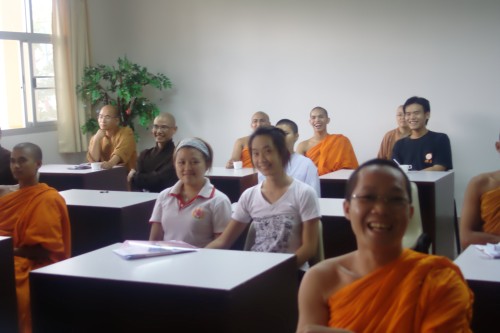
This year there are around 40 new students from 12 countries.
On the 1st day, Dr. Balee, Vice-Rector for Academic Affairs and Ven. Zhen Chan, the Director for Students Affairs welcomed the new students to IBC.
In the afternoon, the students got to know each other through the Ice-breaking session and they were also briefed on temple rules and regulations and communal living in IBC.
On the 2nd day, Ven. Zhen Yuan, Director for Administrative Affairs briefed on the administrative and organizational structure of IBC and visa matters. Dr. Bong Chui Lian briefed on the course registration procedure and academic regulations. Later, Dr. Fa Qing, IT Director of IBC gave a demonstration on how to use IBC e-Library. Finally, Ven. Zhen Chan ended the session by briefing on student affairs, communal living and duties, also the facilities and services provided in IBC.
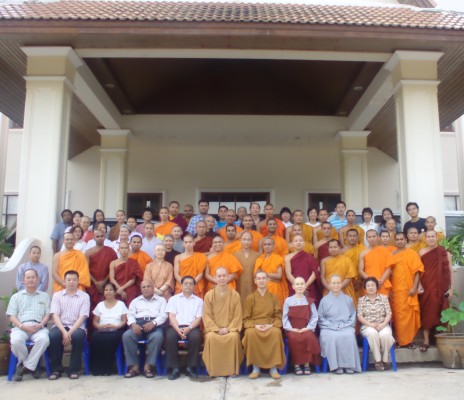
On the 3rd day, the students registered for the courses. Senior students shared their experiences on both academic studies and community life in IBC.
In the afternoon, Ven. Dr. Tawee gave a Dhamma Talk on how to achieve spiritual and worldly success.
On the 4th day, some of the IBC staff and new students went on a day trip to Nakhon Si Thammarat. We visited Wat Phramahathatworamahavihara, and had lunch at Thalad Park.
In the afternoon we visited the City Museum and National Museum. We went to the King’s Palace. Returning to IBC about 8 p.m. we felt a little tired but had a very joyful and happy day and learned many things from the trip.
(Reported by Ven. Jointu, IBC MA student)




